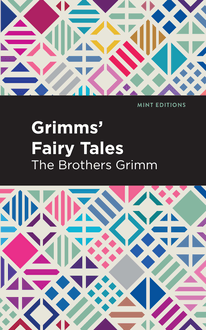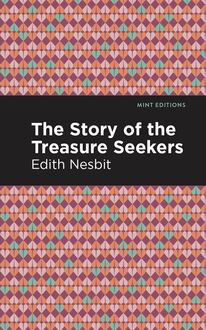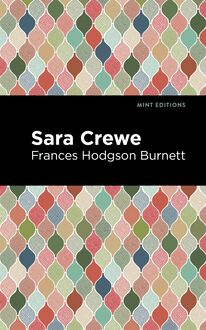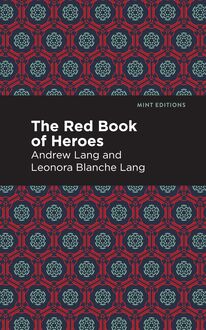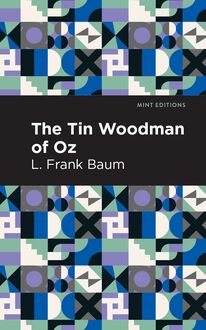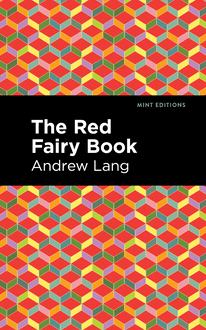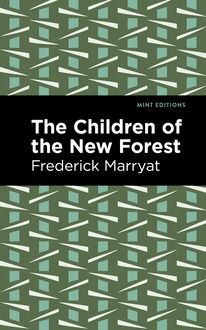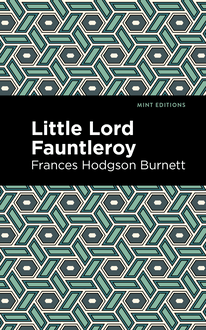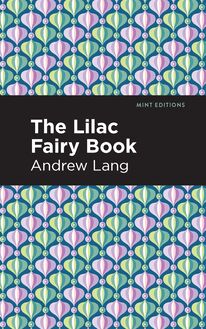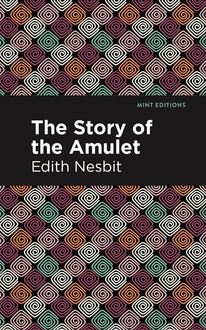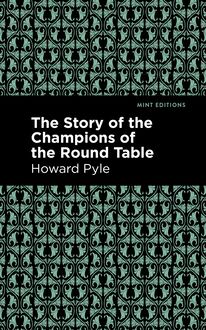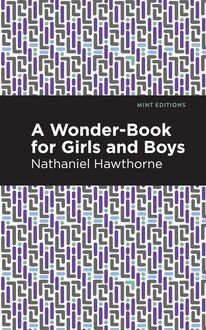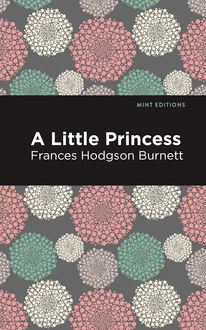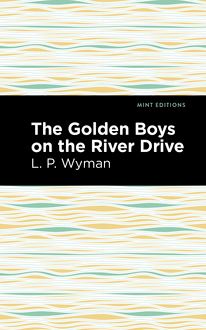-
 Univers
Univers
-
 Ebooks
Ebooks
-
 Livres audio
Livres audio
-
 Presse
Presse
-
 Podcasts
Podcasts
-
 BD
BD
-
 Documents
Documents
-
- Cours
- Révisions
- Ressources pédagogiques
- Sciences de l’éducation
- Manuels scolaires
- Langues
- Travaux de classe
- Annales de BEP
- Etudes supérieures
- Maternelle et primaire
- Fiches de lecture
- Orientation scolaire
- Méthodologie
- Corrigés de devoir
- Annales d’examens et concours
- Annales du bac
- Annales du brevet
- Rapports de stage
La lecture à portée de main
Vous pourrez modifier la taille du texte de cet ouvrage
Découvre YouScribe en t'inscrivant gratuitement
Je m'inscrisDécouvre YouScribe en t'inscrivant gratuitement
Je m'inscrisEn savoir plus
Vous pourrez modifier la taille du texte de cet ouvrage
En savoir plus

Description
The Story of the Treasure Seekers (1899) is a children’s novel by English writer Edith Nesbit. The first book in Nesbit’s beloved Bastable trilogy—which also includes The Wouldbegoods (1901) and The New Treasure Seekers (1904)—The Story of the Treasure Seekers is a story of family, adventure, and mystery for children and adults alike.
The Bastable siblings—Dora, Oswald, Dicky, Alice, Noel, and Horace Octavius—are clever and curious children who live with their widowed father. When their mother died, their father became ill and lost his successful business, forcing the family to live modestly. Inspired by stories of buried gold and jewels—and hoping to help their struggling father—the Bastable children decide to go searching for treasure. Their adventure soon takes them to London, where they abandon digging for the allure of paying work. The Bastables come up with several schemes to make money, including writing poetry, banditry, and starting a newspaper, in the process discovering the power of imagination and the true value of home. The Story of the Treasure Seekers is a masterpiece of children’s fiction from Edith Nesbit, one of the twentieth century’s children’s authors. Originally published as a series of stories in several different periodicals, The Story of the Treasure Seekers was Nesbit’s first novel for children. It would go on to influence both Arthur Ransome and C.S. Lewis, and is a favorite of J.K. Rowling’s.
With a beautifully designed cover and professionally typeset manuscript, this edition of Edith Nesbit’s The Story of the Treasure Seekers is a classic of English children’s literature reimagined for modern readers.
Sujets
Informations
| Publié par | Mint Editions |
| Date de parution | 05 janvier 2021 |
| Nombre de lectures | 0 |
| EAN13 | 9781513274737 |
| Langue | English |
| Poids de l'ouvrage | 1 Mo |
Informations légales : prix de location à la page 0,0450€. Cette information est donnée uniquement à titre indicatif conformément à la législation en vigueur.
Extrait
The Story of the Treasure Seekers
Edith Nesbit
The Story of the Treasure Seekers was first published in 1899.
This edition published by Mint Editions 2021.
ISBN 9781513269733 | E-ISBN 9781513274737
Published by Mint Editions ®
minteditionbooks.com
Publishing Director: Jennifer Newens
Design & Production: Rachel Lopez Metzger
Typesetting: Westchester Publishing Services
C ONTENTS I. T HE C OUNCIL OF W AYS AND M EANS II. D IGGING FOR T REASURE III. B EING D ETECTIVES IV. G OOD H UNTING V. T HE P OET AND THE E DITOR VI. N OEL ’ S P RINCESS VII. B EING B ANDITS VIII. B EING E DITORS IX. T HE G. B. X. L ORD T OTTENHAM XI. C ASTILIAN A MOROSO XII. T HE N OBLENESS OF O SWALD XIII. T HE R OBBER AND THE B URGLAR XIV. T HE D IVINING - ROD XV. “L O , THE P OOR I NDIAN !” XVI. T HE E ND OF THE T REASURE -S EEKING
I
T HE C OUNCIL OF W AYS AND M EANS
This is the story of the different ways we looked for treasure, and I think when you have read it you will see that we were not lazy about the looking.
There are some things I must tell before I begin to tell about the treasure-seeking, because I have read books myself, and I know how beastly it is when a story begins, “ ‘Alas!’ said Hildegarde with a deep sigh, ‘we must look our last on this ancestral home’”—and then some one else says something—and you don’t know for pages and pages where the home is, or who Hildegarde is, or anything about it. Our ancestral home is in the Lewisham Road. It is semi-detached and has a garden, not a large one. We are the Bastables. There are six of us besides Father. Our Mother is dead, and if you think we don’t care because I don’t tell you much about her you only show that you do not understand people at all. Dora is the eldest. Then Oswald—and then Dicky. Oswald won the Latin prize at his preparatory school—and Dicky is good at sums. Alice and Noel are twins: they are ten, and Horace Octavius is my youngest brother. It is one of us that tells this story—but I shall not tell you which: only at the very end perhaps I will. While the story is going on you may be trying to guess, only I bet you don’t. It was Oswald who first thought of looking for treasure. Oswald often thinks of very interesting things. And directly he thought of it he did not keep it to himself, as some boys would have done, but he told the others, and said—
“I’ll tell you what, we must go and seek for treasure: it is always what you do to restore the fallen fortunes of your House.”
Dora said it was all very well. She often says that. She was trying to mend a large hole in one of Noel’s stockings. He tore it on a nail when we were playing shipwrecked mariners on top of the chicken-house the day H.O. fell off and cut his chin: he has the scar still. Dora is the only one of us who ever tries to mend anything. Alice tries to make things sometimes. Once she knitted a red scarf for Noel because his chest is delicate, but it was much wider at one end than the other, and he wouldn’t wear it. So we used it as a pennon, and it did very well, because most of our things are black or grey since Mother died; and scarlet was a nice change. Father does not like you to ask for new things. That was one way we had of knowing that the fortunes of the ancient House of Bastable were really fallen. Another way was that there was no more pocket-money—except a penny now and then to the little ones, and people did not come to dinner any more, like they used to, with pretty dresses, driving up in cabs—and the carpets got holes in them—and when the legs came off things they were not sent to be mended, and we gave up having the gardener except for the front garden, and not that very often. And the silver in the big oak plate-chest that is lined with green baize all went away to the shop to have the dents and scratches taken out of it, and it never came back. We think Father hadn’t enough money to pay the silver man for taking out the dents and scratches. The new spoons and forks were yellowy-white, and not so heavy as the old ones, and they never shone after the first day or two.
Father was very ill after Mother died; and while he was ill his business-partner went to Spain—and there was never much money afterwards. I don’t know why. Then the servants left and there was only one, a General. A great deal of your comfort and happiness depends on having a good General. The last but one was nice: she used to make jolly good currant puddings for us, and let us have the dish on the floor and pretend it was a wild boar we were killing with our forks. But the General we have now nearly always makes sago puddings, and they are the watery kind, and you cannot pretend anything with them, not even islands, like you do with porridge.
Then we left off going to school, and Father said we should go to a good school as soon as he could manage it. He said a holiday would do us all good. We thought he was right, but we wished he had told us he couldn’t afford it. For of course we knew.
Then a great many people used to come to the door with envelopes with no stamps on them, and sometimes they got very angry, and said they were calling for the last time before putting it in other hands. I asked Eliza what that meant, and she kindly explained to me, and I was so sorry for Father.
And once a long, blue paper came; a policeman brought it, and we were so frightened. But Father said it was all right, only when he went up to kiss the girls after they were in bed they said he had been crying, though I’m sure that’s not true. Because only cowards and snivellers cry, and my Father is the bravest man in the world.
So you see it was time we looked for treasure and Oswald said so, and Dora said it was all very well. But the others agreed with Oswald. So we held a council. Dora was in the chair—the big dining-room chair, that we let the fireworks off from, the Fifth of November when we had the measles and couldn’t do it in the garden. The hole has never been mended, so now we have that chair in the nursery, and I think it was cheap at the blowing-up we boys got when the hole was burnt.
“We must do something,” said Alice, “because the exchequer is empty.” She rattled the money-box as she spoke, and it really did rattle because we always keep the bad sixpence in it for luck.
“Yes—but what shall we do?” said Dicky. “It’s so jolly easy to say let’s do something .” Dicky always wants everything settled exactly. Father calls him the Definite Article.
“Let’s read all the books again. We shall get lots of ideas out of them.” It was Noel who suggested this, but we made him shut up, because we knew well enough he only wanted to get back to his old books. Noel is a poet. He sold some of his poetry once—and it was printed, but that does not come in this part of the story.
Then Dicky said, “Look here. We’ll be quite quiet for ten minutes by the clock—and each think of some way to find treasure. And when we’ve thought we’ll try all the ways one after the other, beginning with the eldest.”
“I shan’t be able to think in ten minutes, make it half an hour,” said H.O. His real name is Horace Octavius, but we call him H.O. because of the advertisement, and it’s not so very long ago he was afraid to pass the hoarding where it says “Eat H.O.” in big letters. He says it was when he was a little boy, but I remember last Christmas but one, he woke in the middle of the night crying and howling, and they said it was the pudding. But he told me afterwards he had been dreaming that they really had come to eat H.O., and it couldn’t have been the pudding, when you come to think of it, because it was so very plain.
Well, we made it half an hour—and we all sat quiet, and thought and thought. And I made up my mind before two minutes were over, and I saw the others had, all but Dora, who is always an awful time over everything. I got pins and needles in my leg from sitting still so long, and when it was seven minutes H.O. cried out—“Oh, it must be more than half an hour!”
H.O. is eight years old, but he cannot tell the clock yet. Oswald could tell the clock when he was six.
We all stretched ourselves and began to speak at once, but Dora put up her hands to her ears and said—
“One at a time, please. We aren’t playing Babel.” (It is a very good game. Did you ever play it?)
So Dora made us all sit in a row on the floor, in ages, and then she pointed at us with the finger that had the brass thimble on. Her silver one got lost when the last General but two went away. We think she must have forgotten it was Dora’s and put it in her box by mistake. She was a very forgetful girl. She used to forget what she had spent money on, so that the change was never quite right.
Oswald spoke first. “I think we might stop people on Blackheath—with crape masks and horse-pistols—and say ‘Your money or your life! Resistance is useless, we are armed to the teeth’—like Dick Turpin and Claude Duval. It wouldn’t matter about not having horses, because coaches have gone out too.”
Dora screwed up her nose the way she always does when she is going to talk like the good elder sister in books, and said, “That would be very wrong: it’s like pickpocketing or taking pennies out of Father’s great-coat when it’s hanging in the hall.”
I must say I don’t think she need have said that, especially before the little ones—for it was when I was only four.
But Oswald was not going to let her see he cared, so he said—
“Oh, very well. I can think of lots of other ways. We could rescue an old gentleman from deadly Highwaymen.”
“There aren’t any,” said Dora.
“Oh, well, it’s all the same—from deadly peril, then. There’s plenty of that. Then he would turn out to be the Prince of Wales, and he would say, ‘My noble, my cherished preserver! Here is a million pounds a year. Rise up, Sir Oswald Bastable.’”
But the others did not seem to think so, and it was Alice’s turn to say.
She said, “I think we might try the divining-rod. I’m sure I could do it. I’
-
 Univers
Univers
-
 Ebooks
Ebooks
-
 Livres audio
Livres audio
-
 Presse
Presse
-
 Podcasts
Podcasts
-
 BD
BD
-
 Documents
Documents
-
Jeunesse
-
Littérature
-
Ressources professionnelles
-
Santé et bien-être
-
Savoirs
-
Education
-
Loisirs et hobbies
-
Art, musique et cinéma
-
Actualité et débat de société
-
Jeunesse
-
Littérature
-
Ressources professionnelles
-
Santé et bien-être
-
Savoirs
-
Education
-
Loisirs et hobbies
-
Art, musique et cinéma
-
Actualité et débat de société
-
Actualités
-
Lifestyle
-
Presse jeunesse
-
Presse professionnelle
-
Pratique
-
Presse sportive
-
Presse internationale
-
Culture & Médias
-
Action et Aventures
-
Science-fiction et Fantasy
-
Société
-
Jeunesse
-
Littérature
-
Ressources professionnelles
-
Santé et bien-être
-
Savoirs
-
Education
-
Loisirs et hobbies
-
Art, musique et cinéma
-
Actualité et débat de société
- Cours
- Révisions
- Ressources pédagogiques
- Sciences de l’éducation
- Manuels scolaires
- Langues
- Travaux de classe
- Annales de BEP
- Etudes supérieures
- Maternelle et primaire
- Fiches de lecture
- Orientation scolaire
- Méthodologie
- Corrigés de devoir
- Annales d’examens et concours
- Annales du bac
- Annales du brevet
- Rapports de stage
